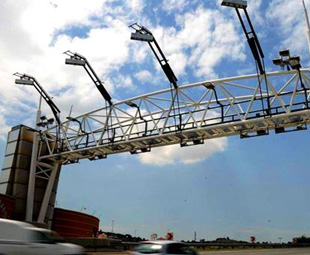Barking up the wrong (gan)tree?

Transport Minister Ben Martins has made some puzzling statements this week regarding the progress made with e-tolls, notes the Justice Project South Africa (JPSA). In particular, his statement that Sanral will use the Criminal Procedure Act to ensure that commuters using the Gauteng Freeway Improvement Project (GFIP) roads pay their tariffs.
Howard Dembovsky, national chairman of the JPSA, says: “Fifteen years ago the Department of Transport enacted legislation named the Administrative Adjudication of Road Traffic Offences (AARTO) Act; its stated purpose being: ‘Alleviating the burden on the courts of trying offenders for infringements.'” He adds that the Act has also been popularly described as one that “decriminalises road traffic infringements”.
The AARTO Act already makes provision for prosecution of “toll dodgers” in Schedule 3, which defines the penalty, for driving on a toll road without paying the toll, at R250 for a motor vehicle not required to have and display an operator card and R500 for one that is required to do so.
“Since a vast portion of the GFIP freeway infrastructure falls within the jurisdiction of the Johannesburg and Tshwane Metropolitan Police Departments, that have been subject to AARTO since 2008, it is surprising that the Minister would choose to defy legislation that was enacted by his own department, in what seems to be an attempt to introduce an element of fear of criminal prosecution into the e-toll saga,” says Dembovsky.
“This is, of course, assuming that the Minister does not intend to scrap AARTO prior to introducing e-tolls,” he adds.
“The Minister’s other statement that he is ‘comfortable that Sanral will be able to handle the volumes’ is debatable,” says Dembovsky, “given the fact that the Criminal Procedure Act requires Magistrates’ Courts to adjudicate over matters brought in terms of the Act.” One can’t simply issue a notice.
“The Criminal Courts are already clogged and unable to deal with existing traffic matters timeously,” Dembovsky points out. “Introducing what could conceivably be hundreds of thousands additional summonses and cases into these courts can only be described as completely impractical and, for that matter, frivolous.”
He says that this is, once again, assuming that the Minister doesn’t intend to have dedicated courts established to deal with e-tolls: “Where such specialist consideration has not been given to offences like driving under the influence of alcohol, which is known to kill thousands of people on our roads annually.”
*This information’s been adapted from a Justice Project South Africa Media Statement on behalf of Howard Dembovsky.
Published by
Focus on Transport
focusmagsa




